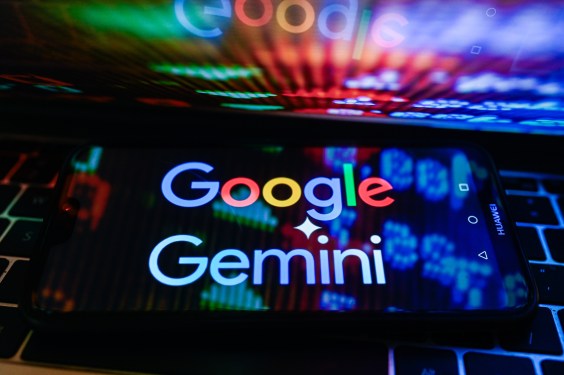Just a day after Amazon introduced its new AI-powered Echo devices, Google debuted its refreshed lineup of Google Home and Nest devices, designed to showcase its AI assistant Gemini AI. The company also took the wraps off its revamped Google Home software platform and its new business strategy for the AI era.
While the company still plans to compete on hardware, it also wants to make Gemini accessible to other manufacturers and businesses. This strategy is similar to how Google offers its own flagship Android devices with its Pixel line but allows other companies to build their own Android smartphones with different form factors and price points. Anish Kattukaran, Chief Product Officer at Google Home and Nest, explained that Google will build flagship hardware to showcase innovation and push the boundaries of what is possible with Gemini. He also stated that Gemini should not be constrained to one set of devices from one manufacturer at one set of price points, making it accessible to more people.
To demonstrate this approach, Google unveiled an overhauled lineup of Nest devices, including the Nest Cam Outdoor, the Nest Cam Indoor, and the Nest Doorbell, which take advantage of Gemini. It also teased an upgraded version of its Google Home speaker, due out in spring 2026, and a low-cost camera and doorbell sold in partnership with Walmart.
However, the company decided to first bring Gemini to its existing device owners, provided they have certain hardware capabilities like sufficient processing power. This approach is intentional. Google does not want to require people to buy new devices to access the power of its AI when it already has over 800 million devices in its ecosystem. Those devices are connected through the company’s Google Home Cloud-to-Cloud APIs and the smart home standard Matter, an industry protocol that allows devices from different manufacturers to work together. The company also needs time to test the Gemini features and performance with existing customers before launching them on new flagship devices.
Meanwhile, Google is offering its partners a toolkit for building AI cameras, a new reference hardware design, recommendations about main processors, a new Google Camera embedded SDK, and more. Walmart is Google’s first partner and is launching an affordable indoor camera and doorbell under the retailer’s brand.
With Gemini, the idea is to offer AI-powered devices that you can converse with in more natural ways, whether that means interrupting, adding details, or asking more complex questions. For instance, you could describe a song from a movie without knowing its title, and the device could identify and play it. You could then ask about the lyrics or request similar songs. You could also ask for a podcast featuring a specific person or have Gemini create an interactive bedtime story for children.
In terms of household coordination, Gemini will be able to handle calendars, lists, timers, reminders, and other tasks. For example, instead of listing individual recipe ingredients, you could just say you want to make a specific dish, and Gemini would create a shopping list for you, even asking for how many people. Instead of setting a timer for a specific time, you could say you are boiling eggs, and Gemini would ask for your preferred consistency and set the timer accordingly.
Users will no longer need to remember the names of their various smart home devices. You could sit in your bedroom and tell Gemini you are about to cook and to turn on the lights, and the AI would understand you mean the kitchen lights. You can also chain commands, such as asking to turn off the lights, adjust the thermostat, and start a vacuum all at once, or make exceptions like leaving the office lights on.
For cameras and doorbells, Gemini can make better sense of what it is seeing, providing a summary of important events instead of a stream of notifications. Gemini will also help people use more complex features, like preset routines that control multiple devices automatically, or better understand their energy use by asking questions. Instead of configuring automations manually, you could use a new feature to ask for what you want to do and get helpful suggestions. For instance, you could ask how to feel safer at home, and it might suggest an automation for when you are home alone or one that simulates your presence when you are away.
All this is controlled via a redesigned version of the Google Home app, which is now faster, more stable, and powered by Gemini AI. In the app, Gemini will offer descriptions of events spotted by your cameras, summarize the day’s activities, and direct you to specific clips. Some of these features require a Google Home Premium subscription.
In addition to AI-powered features, you can also chat in a free-flowing conversation with Gemini Live by telling your smart device to start a chat. This begins a back-and-forth conversation where you do not have to repeat the wake phrase for every request. This allows for more natural chats where you can ask complex questions, brainstorm with an AI partner, or have it generate creative ideas.
For now, Gemini Live is a mode offered by the devices, but Anish Kattukaran believes that in the future, this conversational approach will be the standard experience. He is very optimistic about this experience becoming the default, converging with a more conversational assistant, access to information and creativity, and other features to create a foundation for a home that can see, hear, understand, and act on your behalf to make life easier.
The Google Home app update is rolling out in early access now. The Nest and Walmart devices are becoming available, but Google’s new Home speaker launches in spring 2026. Specifications for manufacturers are available through the Google Home developers site.

